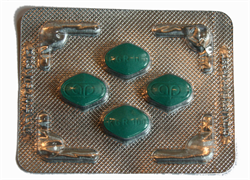Erectile Dysfunction, what is it?
Erectile Dysfunction or ED is when a man is unable to get or keep an erection that would allow them to take part in sexual intercourse. Or for ample time that would allow them to partake in sexual intercourse. Put simply, this is a man’s ability to get an erection for long enough to enjoy a sexual experience. ED is also known as impotence.
Statistics indicate that ED affects hundreds of millions of men across the world. It is most common in men over 40. Also in those with unhealthy lifestyles or diets.
A man produces an erection through a combination of factors. These include psychological, hormonal, neural and vascular factors. For some this is a seemingly instinctive and automatic outcome. However, the actual mechanics of the process are complex. So, any part of the process can cause a failure to become erect.
Common factors can play a part in suffering from Erectile Dysfunction. These include illness, aging, stress and a poor diet.
Many men go undiagnosed and untreated. There is an active effort to overcome the stigma that surrounds Erectile Dysfunction. In many countries, governments have tried to raise awareness of ED. They have also worked to publicise the available treatments and support available.
Treatments for Erectile Dysfunction
 Over the last 20 years, many new drugs have been released to treat ED. The most well-known among these are the PDE5 inhibitors. These also show the most promising results in trials. These PDE5 inhibitors include the drug Kamagra. Kamagra contains Sildenafil Citrate - the most common medication for the treatment of ED.
Over the last 20 years, many new drugs have been released to treat ED. The most well-known among these are the PDE5 inhibitors. These also show the most promising results in trials. These PDE5 inhibitors include the drug Kamagra. Kamagra contains Sildenafil Citrate - the most common medication for the treatment of ED.
Since the creation of current medications, multiple studies have shown that they significantly improve the sexual experience for men with ED. They show that current drugs can be a very effective treatment. However, in some cases, medication is not the only course of treatment. So, it is important that men suffering from ED consult their doctor. Both for diagnosis and advice on their best course of action.
